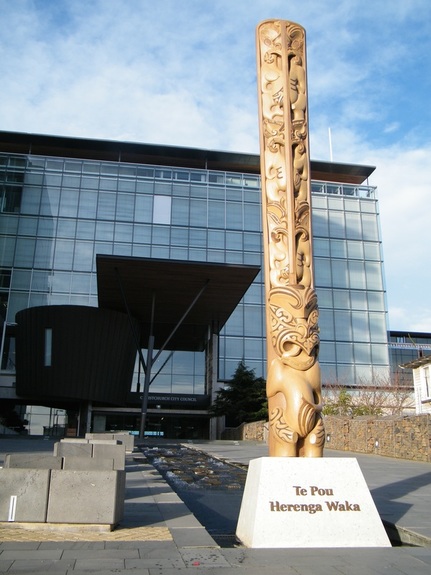Teaching
I teach courses on planning theory and methods, with a particular focus on the theory and practice of planning with (and not for) Indigenous communities. In my previously positions, I also taught courses on environmental, natural resource and countryside planning.
My approach to teaching and learning seeks to encourage my students (and myself!) to become reflective planning practitioners by engaging in:
All give rise to a particular kind of university teaching: one that is deliberative, encourages personal reflection, and makes extensive use of case studies – particularly those drawn from the university’s local and regional environments. |
Christchurch Civic Building & Maori pouwhenua, "the post that brings all people together" (Image credit: Janice Barry, 2013)
|
Current Courses
CITY 7020: Planning Research Methods
This graduate-level course exposes students to methods of data collection and analysis that are commonly used in both planning research and practice.
|
CITY 7440: Planning Design IV - Indigenous Planning Studio
This graduate-level studio works to support Indigenous communities who are reclaiming and adapting a variety of planning approaches.
|
EVLU 4006 - T4: Indigenous Peoples & Community Planning
This undergraduate course critically examines Indigenous peoples’ experiences of community planning and considers possibilities for coexistence.
|
